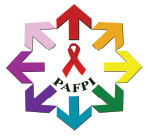Support and Services
Positive Action Foundation Philippines, Inc care and support services are essential components of comprehensive healthcare systems, especially in the Philippines particularly in National Capital Region (NCR) heavily affected by the HIV/AIDS pandemic. These services of PAFPI are designed to address the multifaceted needs of individuals living with HIV/AIDS, as well as their families and communities.
PAFPIcares offers these services for our clients and partners when they seek for help.
- Referral to Medical Care and Treatment to public and private institutions: This includes access to antiretroviral therapy (ART) and other medications necessary for managing HIV/AIDS. Regular medical check-ups, laboratory tests, and treatment adherence support are also provided.
- Psychosocial Support: This involves counseling services aimed at addressing the emotional and psychological aspects of living with HIV/AIDS. It may include individual counseling, support groups, mental health services, and interventions to reduce stigma and discrimination.
- Education and Prevention: PAFPIcares provide education and awareness programs to prevent the spread of HIV/AIDS. This includes information on safer sex practices, condom use, community based HIV screening, and strategies for reducing mother-to-child transmission.
- Community Outreach: Outreach programs are conducted to reach marginalized populations and increase access to HIV/AIDS care and support services. This may involve mobile clinics, community health workers, and partnerships with local community organizations.
- Testing and Counseling: Offer voluntary HIV testing and counseling (HTC) services to encourage early detection of HIV infection. Counseling is provided before and after testing to support individuals through the process and link them to appropriate care and support services.
- Nutritional Support: Good nutrition is crucial for people living with HIV/AIDS to maintain their health and well-being. Provide provide nutritional counseling, food assistance programs, and supplements to support individuals with HIV/AIDS particularly those HIV patients in house clients and in public hospital in house
- Legal and Advocacy Services: Legal assistance and referral may be offered to address issues related to discrimination, access to healthcare, and protection of rights for people living with HIV/AIDS. Advocacy efforts also aim to influence policies and practices that impact the HIV/AIDS community.
- Care for Orphans and Vulnerable Children: PAFPIcares extend their services to support children orphaned or affected by HIV/AIDS. This may include educational support, psychosocial services, and efforts to strengthen family and community support systems.
- Monitoring and Evaluation: Continuous monitoring and evaluation are essential to assess the effectiveness of HIV/AIDS care and support services. This involves tracking key indicators, collecting feedback from clients, and making adjustments to improve service delivery.
- Collaboration and Partnerships: Collaboration with government agencies, non-governmental organizations (NGOs), healthcare providers, and other stakeholders is critical for delivering comprehensive HIV/AIDS care and support services. Partnerships help leverage resources, expertise, and reach to maximize impact.
- Employment referral for individual living with HIV and Hiring of Employees within the organization on a based projects employment.
PAFPI support in hiring dividuals who have actively volunteered within the organization can have numerous benefits, including their familiarity with the organization's mission, values, and operations. PAFPIcares process for hiring HIV-positive individuals after they have actively volunteered within our organization. They will be called once the funded project of the organization availability: The organization also refer to our other partners agencies bothprivate and public as well as NGOs for possible employment from their agencies for HIV individual who are looking for a job.
- Identify Potential Candidates: PAFPI will keep an eye out for volunteers who demonstrate dedication, passion, and the necessary skills for potential employment opportunities within the organization. This could include volunteers who consistently go above and beyond, show leadership qualities, or possess relevant experience and qualifications.
- Formalize Volunteer Engagement: The organization formalize the volunteer engagement process by documenting the roles, responsibilities, and contributions of volunteers. Keep records of their activities, achievements, and any feedback received from staff and clients they’ve interacted with during their volunteer work.
- Open Communication: Maintain open communication with volunteers about potential employment opportunities within the organization. We let them know that you value their contributions and would consider them for paid positions as they become available.
- Advertisement of Job Vacancies: When job vacancies arise, advertise them both internally (within the organization) and externally, as appropriate. Encourage volunteers who are interested and qualified to apply for these positions.
- Fair and Transparent Selection Process: Conduct the hiring process in a fair and transparent manner, ensuring that all candidates, including former volunteers, are evaluated based on their qualifications, skills, and experience relevant to the position. Avoid any form of discrimination, including discrimination based on HIV status.
- Confidentiality: Respect the confidentiality of applicants’ HIV status. Only those individuals involved in the hiring process who have a legitimate need to know should be informed of an applicant’s HIV status, and this information should be treated with the utmost confidentiality.
- Supportive Work Environment: PAFPI has a supportive work environment that values diversity and inclusion. Offer reasonable accommodations to employees living with HIV, if needed, and provide training and education to staff on HIV/AIDS awareness and stigma reduction.
- Employee Development: Provide opportunities for professional development and growth for all employees, including those who were formerly volunteers. Invest in training, mentorship, and career advancement programs to support their ongoing development within the organization.
By following the steps, our organization can effectively transition HIV-positive volunteers into paid employment roles while fostering an inclusive and supportive workplace culture. The organization care and support services play a crucial role in reducing the burden of HIV/AIDS, improving the quality of life for affected individuals, and contributing to the overall health and well-being of communities.
